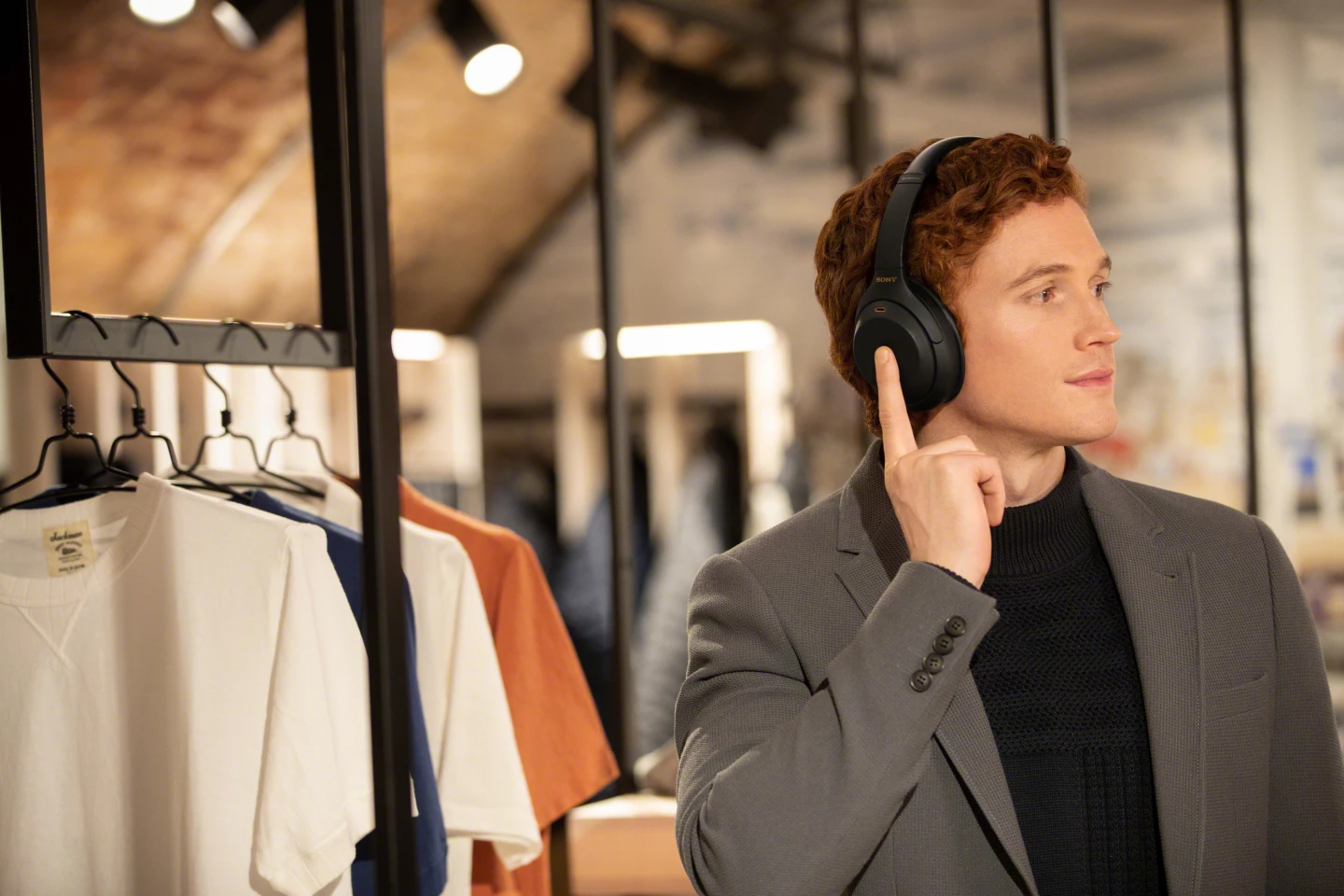The MDR-1000X started it all in 2016, followed a year later by the WH-1000XM2, and then the XM3 in August 2017. Now, the highly anticipated XM4 noise-canceling headphones have been announced.
Until we tried on a pair of the original 1000X headphones at IFA 2016, we had thought that Bose was going to rule the noise-canceling roost for a long time to come. Sony's over-ears impressively removed the background hustle and bustle from the show floor and allowed us to completely focus on the sample music being offered.
The technology has gone from strength to strength with each successive generation, with us noting after taking the XM3s for a proper workout that "it's the noise canceling capabilities that really sell these headphones, setting a new bar for other headphone manufacturers to strive for."
And Sony says that it's pushed the envelope yet again for the WH-1000XM4 headphones.

Two microphones on each earcup listen for noise from the outside world and send what they find to the QN1 noise-canceling processor. Working with a new Bluetooth system-on-chip that senses music and noise at over 700 times per second, a brand new algorithm processes out ambient noise in real time.
The Bluetooth 5.0 chip supports AAC and LDAC codecs, and the headphones can be paired with two source devices simultaneously. Switching between the two is available at the touch of a button, and they "know" which device needs to be connected to if a call comes in. Additionally, if you misplace your XM4s, Google's Fast Pair technology will ping them to help you locate them.
The XM4s benefit from a very wide frequency response of 4 Hz to 40 kHz when cabled up to a music source, or 20 Hz to 20 kHz over Bluetooth at 44.1 kHz sampling rates and 20 Hz to 40 kHz at LDAC 96 kHz. Sony boasts that its latest DSEE Extreme audio processor with Edge-AI can rebuild detail lost in digital compression to provide "a full fidelity experience" in real time. And when the music source is an Android smartphone or iPhone that's streaming tunes from a participating service, users will be treated to immersive 360 audio, with optimization for each listener available courtesy of the Headphones Connect app.
While it's now fairly common to find a transparency mode on modern headphones, Sony dials it up a notch by automating the process. Its Speak-to-Chat feature will automatically stop music playback when it register's the wearer's voice, to let through ambient sounds to facilitate conversations with travel companions without taking off the headphones. Playback will automatically resume 30 seconds after the wearer stops speaking. Manual control of transparency mode is also possible by placing a hand over the right earcup to decrease playback volume.
Five microphones focus on the wearer's voice during Speak-to-Chat and hands-free calling, to ensure clarity, and the headphones are compatible with Google Assistant and Amazon Alexa too.

But there's more. improved Adaptive Sound Control doesn't just adjust the intensity of noise canceling to suit noise levels in different locations, it learns to recognize frequently visited locations like the office or the gym, and tailors the ambient sound settings to best suit those situations. Users are able to set up such locations and the preferred sound settings via the companion app.
Playback is paused when sensors detect that the headphones have been removed, to preserve the battery, with per charge battery life reported to be 30 hours. Should the juice run out unexpectedly, a 10-minute quick charge will give up to five hours to locate somewhere for a full charge.
And possibly the best news? Sony hasn't put up the price. The XM4 over-ears are available for pre-order now for US$349.99. We can't wait to give them a try. The launch video below has more.
Product page: WH-1000XM4








